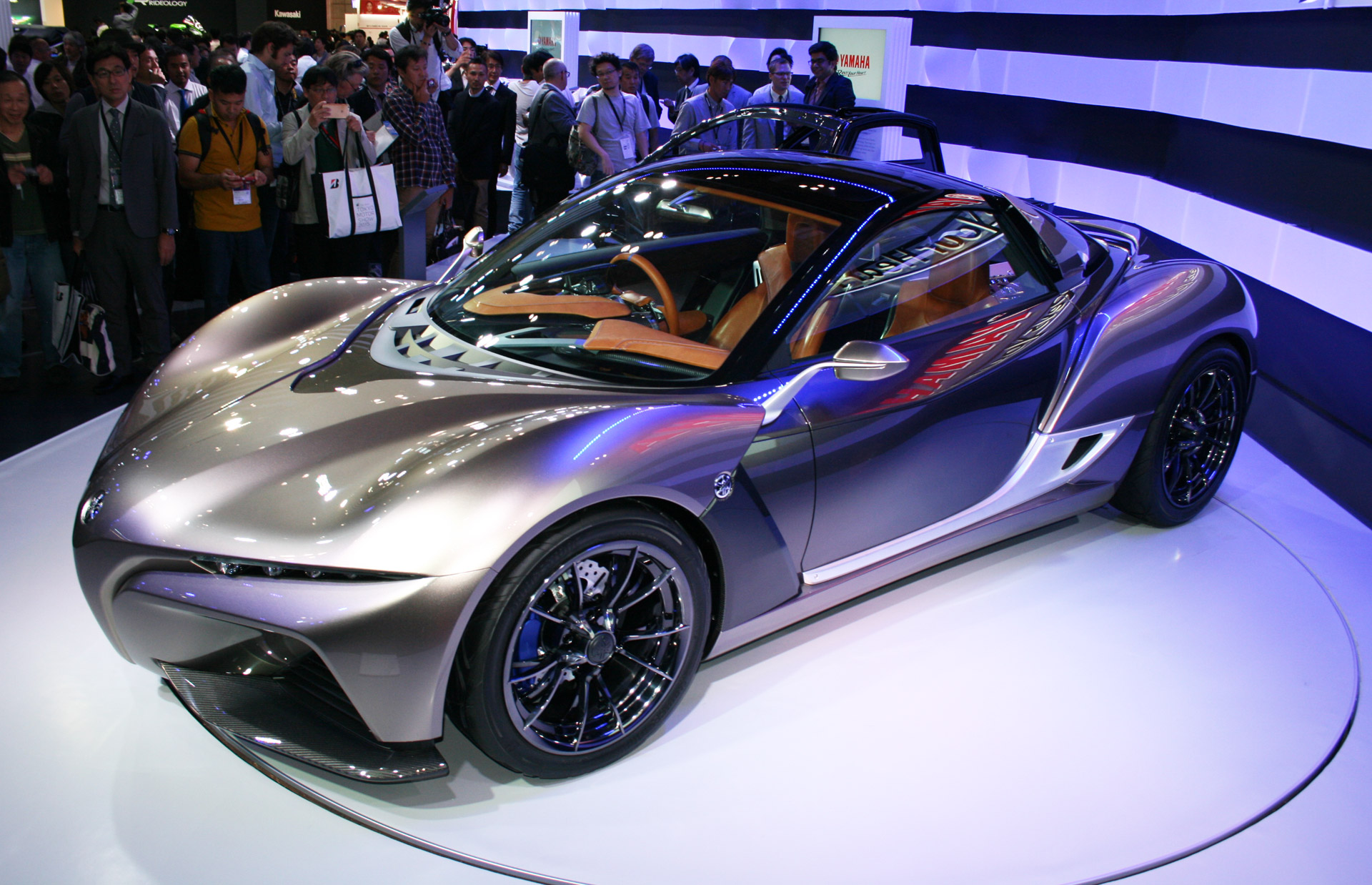Yamaha has officially abandoned its plans to build a series of cars using Gordon Murray's iStream production process, the company revealed at the Tokyo Motor Show.
The Japanese supplier and motorcycle builder had multiple vehicle concepts in the pipeline. A small city car, dubbed Motiv, would have been the volume play; a pickup variant called the Cross Hub would have given the platform some utility. The "flagship" (using that term somewhat loosely) would have been the Sports Ride—a 1,650-pound, rear-wheel drive sports car.
Those plans are no more, as Yamaha's executives said that there simply isn't a business case for any of them.
"That is a decision taken by President Hidaka for the foreseeable future, as we could not see a way to develop either car to make it stand out from the competition, which is very strong. The sports car in particular had great appeal for us as enthusiasts, but the marketplace is particularly difficult. We now see other opportunities," Yamaha spokesman Naoto Horie told Autocar in a Wednesday report.
The key to all of these cars was to be Gordon Murray Automotive's iStream production process. This process would have utilized steel tube construction with plastic or composite bodies to reduce weight and maintain crash performance.
Perhaps more importantly, Murray said the process would require 80 percent less capital expenditure and physical plant space than traditional manufacturing methods.
But despite these advantages, iStream's critical feature is scalability. Murray says it could be utilized to profitably build as few as just 1,000 or as many as 350,000.
For buyers looking for low-volume sports cars, this is an attractive prospect. The father of the McLaren F1 supercar called the development of this revolutionary approach to vehicle assembly a "far bigger challenge than winning an F1 championship."
